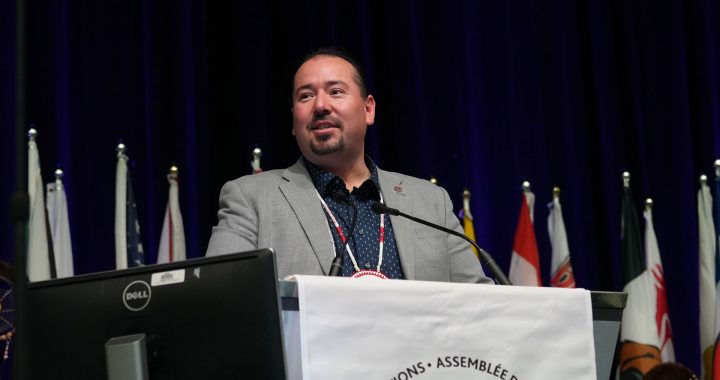Just before the lunch rush at Winnipeg’s Bistro on Notre Dame, a group of Métis youth are cooking up pemmican and polenta.
It’s the final week of Me-yaw-sin Micowin–Michif for “Good Food”–a free culinary program for Métis youth.
Bistro owner, Chef Dean Herkert, is running the show.
“The program is designed to help them prepare for employment and cover all the basics,” Herkert said. “The content is good for just about anybody in terms of prepping for employment in general.”
Over eight weeks, the students receive a crash course in culinary arts, financial literacy and employment skills.
The program is a partnership between the Manitoba Métis Federation, Red River College Polytechnic and the Further Education Society.
Students, like Malachi Coulombe, spent the first week cooking in the college’s kitchen.
“We made pemmican, bannock and all these traditional Métis dishes,” Coulombe said. “I think it was important just to learn my culture and go in depth more.”
Later, students connected with their heritage at the Riel House National Historic Site.
“When we went to the Louis Riel House, we made bannock over a fire, we did some beading, and we did a tour of the house,” student Tevyn Jazic said. “It felt like I learned a lot that day.”
A growing Indigenous hospitality sector
Herkert opened Bistro on Notre Dame in 2020 to serve traditional Métis fare with a fusion twist.
He focused on sourcing ingredients from local and Indigenous producers.
“That was the first big part of the puzzle, source local. But as you look more into local, you also have to ask the question, if we’re sourcing local, what’s Indigenous?” he said. “What was here beforehand that made the land so fertile and bountiful, as the Europeans would say.”
Herkert knows of eight Indigenous-owned restaurants in Winnipeg–a jump from zero a decade ago.
According to a report by the Conference Board of Canada, the number of Indigenous-owned businesses more than doubled between 2019 and 2023, increasing from 81 to 170.
By training more Métis hospitality professionals, the program hopes to meet a growing demand.
“To go from zero to eight and to look at the hospitality sector in general and not be able to identify one-fifth of the work population as being Indigenous, there’s a gap to fill. There’s certainly room for improvement there,” Herkert said.
Setting youth up for success
While not all students are eyeing a career in culinary arts, the training is highly transferable.
“We did our first aid training, we got our certificate. We did our food handlers. We’re getting communication and collaboration skills,” Elizabeth Monkman said.
Students Paul Coloumbe and Alison Tanner-Desjarlais are dreaming of careers in film and television. In the meantime, they say the program will help them get experience and pay for training.
“I’m also trying to look for a job currently, so being within this program is going to help me a lot trying to get into restaurants,” Tanner-Desjarlais said. “I want to be a film director. So, even if this doesn’t help me what I want to do for a long-term job, it’s still great to get the experience.”
As the first Me-yaw-sin Micowin class prepares to graduate, Herkert said this is just the start.
“This first year it’s a pilot with the Métis. Long-term we would hope to be able to establish similar programs within Manitoba for the different First Nations that are here in the province.”











